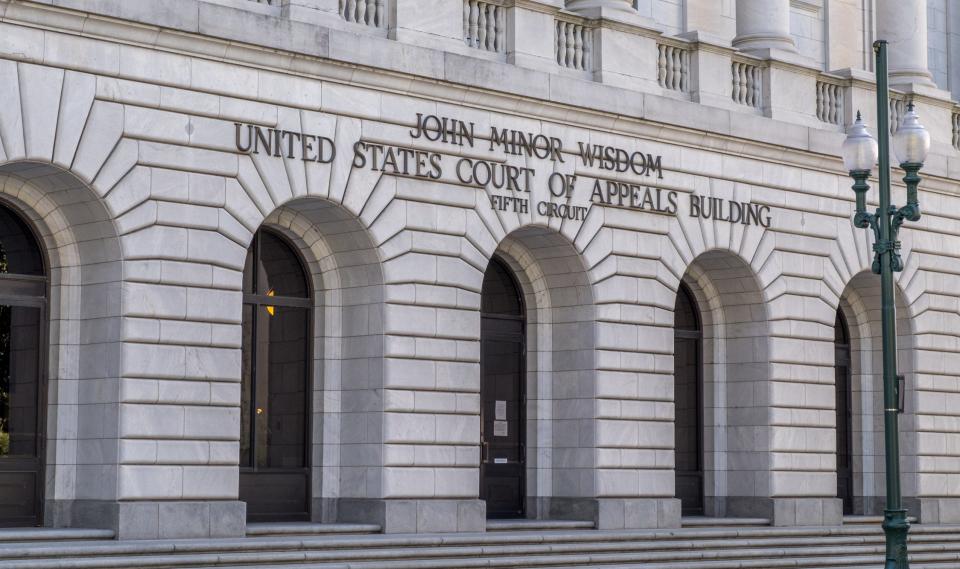Suing cops takes forever because they get 3 chances to appeal. Why should they?
You're supposed to be able to sue for violations of your rights. But qualified immunity upends the usual process and can stall cases for years.
Imagine someone who slips and falls at a retail store wants to sue the store for their injuries. The path to trial is direct.
First, after the plaintiff files their lawsuit, the defendant can file a motion to dismiss. That’s an argument that the case is so weak it should never have been in court at all. If the court denies that motion, then the case proceeds to discovery. The store must turn over documents, maybe even including video of the accident, and have witnesses sit for depositions.
At the end of all that, the defendant gets to file a motion for summary judgment. Here, the defendant argues the plaintiff can’t prove their case based on the evidence.
If that motion fails, the plaintiff has a trial, almost always in front of a jury. If the plaintiff wins, then the defendant gets their one and only chance to appeal the case to a higher court. It’s a long process, but it’s linear. Everything is done only once.

But that process gets upended when a plaintiff files suit against a government official.
What happens in a qualified immunity defense?
The doctrine of qualified immunity protects police officers and other officials from being sued unless a plaintiff can demonstrate the officials violated "clearly established" law. Some say this strong protection from liability frees officers to do their jobs. Others point out that it immunizes bad actors from the consequences of their actions.
Qualified immunity offers startling procedural benefits to government defendants. Just compare the way a normal lawsuit proceeds through the civil justice system with the way a lawsuit involving qualified immunity proceeds.
Like the retail store defendant, government officials can file a motion to dismiss a lawsuit brought against them. But unlike the store, if the motion is denied – that is, if the court says the plaintiff can proceed with their lawsuit – the government officials can file an immediate appeal to a higher court.
That appeal freezes the case in its tracks, maybe for years. If the plaintiff somehow wins that appeal – and that’s unlikely because the government usually wins – then there’s discovery.
After discovery, like the store, the officials can move for summary judgment. If they lose, they can appeal again, and again they can freeze the case for years during the appellate process. Only after that does the plaintiff get a trial. And the officers get one last appeal after trial, just like a normal defendant.
In other words, police officers get an incredible three bites at the appellate apple when most defendants get only one. And they only need to win once to escape liability, while the plaintiff must run the table by winning every single one of the three appeals.
That’s why lawsuits against police can be so frustrating. Take a recent case as an example: A group of police officers are accused of killing an unarmed Louisiana man, Ronald Greene, by beating him and repeatedly shocking him with a taser until he was covered in blood and in cardiac arrest. The judge assigned to the case denied the officers' motion to dismiss. But the officers appealed immediately, even though their argument is incredibly weak.
If the case brought by Greene's family survives the appeal (as it should) then they will face two more appeals before they can collect anything for their pain and suffering. The case will likely take double or triple the time a normal case would take. The whole time, Greene’s family is waiting for a small measure of justice.
No basis in the Constitution
If all of that were written down in the Constitution or in a law, perhaps it would be OK. But it’s not. In fact, the multiple-appeals procedure is just as made up as qualified immunity itself.
Courts, and the Supreme Court in particular, simply held that police officers and other government agents have a special exception to the normal rule that there is only one appeal in a case. Why? Because, the courts said, it was unfair for officers who might be immune from suit to have to litigate a case to the end. But that analysis didn’t take into account at all how unfair it was for the plaintiff.
Limiting this extraordinary and completely unjustified procedural protection would go a long way toward making qualified immunity less unfair. Courts should and can take action.

Raffi Melkonian is a partner at Wright Close & Barger LLP in Houston.
This column is part of a series by the USA TODAY Opinion team examining the issue of qualified immunity. The project is made possible in part by a grant from Stand Together. Stand Together does not provide editorial input.
This article originally appeared on Wichita Falls Times Record News: Suing cops takes forever because they get 3 chances to appeal.

